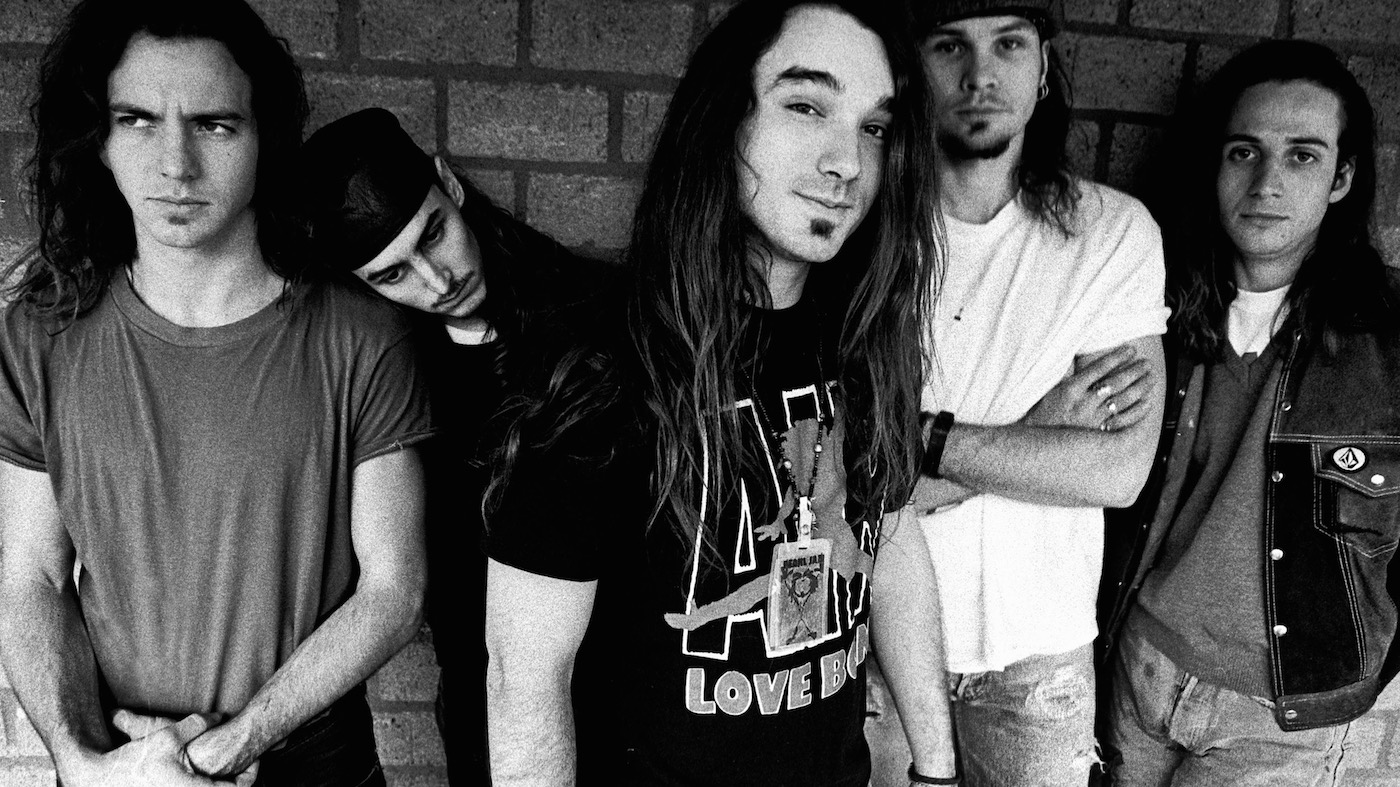Pearl Jam’s debut album, Ten, will turn 30 this summer, and in the new issue of Classic Rock magazine, out now, vocalist Eddie Vedder and guitarist Mike McCready look back upon the album’s phenomenal success, and recall how it was “a mindfuck” for the band members, and a period of tumult they feared might destroy everything they had worked for.
“I felt that with more popularity, we were going to be crushed, our heads were going to pop like grapes,” Vedder recalled.
Released on August 27, 1991, Ten wasn‘t an immediate hit, and wouldn‘t break into the US Top 10 until May 1992. But when MTV placed the video for the album‘s third single, Jeremy, in rotation, Ten began to catch fire.
Speaking in Classic Rock, Mike McCready recalls a specific moment where he realised his band were starting to connect, as Pearl Jam played the second staging of Perry Farrell’s alternative rock roadshow Lollapalooza.
“We’re playing at four o’clock in the afternoon, going on right after Lush, and there’s thirty thousand people just running toward the stage,” he remembers. “It was a mind-fuck. But it was awesome. It was like my dream coming true in front of my face.”
When the band’s second album, Vs, was released in 1993, it sold 950,378 copies in its first week on sale, more than the rest of the records in the Billboard Top 10 put together. Ten, meantime, was still selling, becoming the eighth-best-selling album of 1993 despite being two tears old.
“The band will probably hate me for saying this,” said Vedder at the time, “but I feel itʼs getting too big too quickly.”
“When Jeremy happened, Sony Music CEO Tommy Mottola was saying: ‘You have to release Black,’” the band’s manager Kelly Curtis said in 2001. “And the band was saying: ‘No. This is big enough.’ We turned down inaugurals, TV specials, stadium tours, every kind of merchandise you can think of. I got a call from Calvin Klein, wanting Eddie to be in an ad. I was proud of the band, proud of their stance.”
For Vedder, stepping back was all about survival.
“I knew it wasn’t graceful, the way we were handling it,” he says. “At the same time, it’s like being graceful in an alley fight. You’re just trying to get out of there alive. We held tight to each other and held tight to music.”
“The decision to pull back and to not do videos and to slow down interviews, it was all about Jeff and Stone and Ed thinking it was necessary,“ says McCready. “Ed was getting way more scrutiny than anybody. It was probably overwhelming for him. It was for all of us at the time. But I remember not wanting to pull back, saying: ‘This is what we’ve wanted since we were kids. Let’s keep doing this. Let’s do videos, let’s keep going, let’s embrace this.‘ But they weren’t into it. They said: ‘No, we’ve got to, because this is all gonna fall apart if we don’t.’ And I think they were right.”
“I feel like we’re still around today maybe because of that first major decision to try to do it our own way. We made a lot of decisions that were counter to what the record label wanted us to do. So we were lucky, but it was our decision: pull back, five against one…”
For more from Pearl Jam, pick up the new issue of Classic Rock, which is on sale now.

